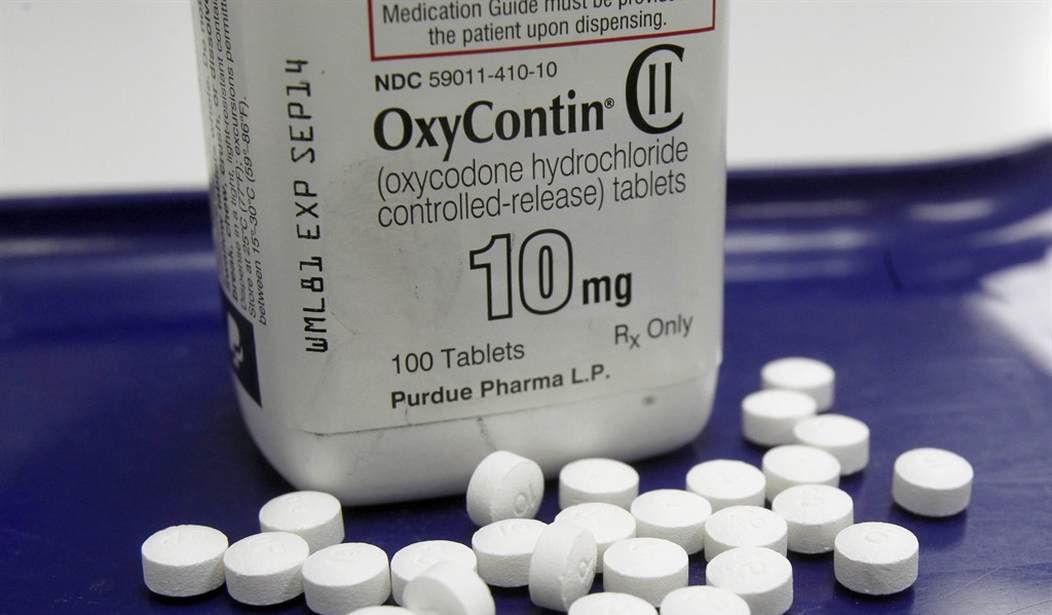Consumers who make the effort to shop around often discover drug prices can vary from one pharmacy to the next. Retail drug prices are mostly transparent; patients generally encounter few problems when calling a pharmacy to ask what a given drug costs on consumers’ health plans. Price transparency is an enormous benefit to consumers in retail markets -- but serves almost no purpose for consumers in wholesale markets. A wholesale vendor may have a wholesale price for which all retail vendors qualify. But in competitive wholesale markets, the ability to secure lower wholesale prices is often considered a competitive advantage of a volume purchaser like a big box store. Indeed, wholesale prices are often negotiated among parties with the details considered proprietary.
Wholesale Price Disclosure Would Likely Increase Consumers’ Drug Costs
The opinions expressed by columnists are their own and do not necessarily represent the views of Townhall.com.

Advertisement
As is common in other wholesale markets, wholesale drug prices also vary from one purchaser to the next. For instance, General Motors’ employee health plan negotiates lower drug prices than are available to smaller firms with far fewer workers. For many drugs, wholesale prices are merely “list prices,” sort of like the sticker price on new cars. The manufacturers of brand-name drugs routinely provide discounts off list price in the form of rebates that lower the final cost by 20 to 30 percent, on average.
Drug makers have been criticized in the press lately for the high prices charged for some of their newer drugs. Politicians have taken notice -- including Hillary Clinton, Bernie Sanders and even Donald Trump. Drug makers have tried to pass off some of the blame for high prices by claiming drug plan administrators are jacking up the price consumers pay or withholding some of the drug rebates from their clients.
This claim is a red herring. When Pharmacy Benefit Managers (PBMs) negotiate the price of brand drugs, the drug maker has significant leverage in setting prices. PBMs must also compete for the business of health plan sponsors (insurers and employers). It is ultimately up to plan sponsors to decide whether they want to capture rebates or allow their plan administrators to profit from each claim adjudicated. It is a competitive market. Plan sponsors are free to negotiate whichever method suits them -- and PBMs generally yield to the preferences of their clients. The two most common pricing methods drug plans use are pass-through pricing and spread-pricing.
Advertisement
Pass-through Pricing. Some PBMs agree to surrender all manufacturers’ drug rebates to their plan sponsor in return for a higher negotiated management fee. With pass-through pricing, the PBM might agree to pass through all rebates, or an agreed upon portion thereof, to the plan sponsor. The amount of the fees are determined by the variety of services the PBM provides to the plan.
According to a 2015 report, about three-fourths of employer plans share in the rebates negotiated by PBMs:
•More than one-fourth (28 percent) received the entire rebate.
•More than one-in-five (22 percent) received a flat fee per script (worth about $24).
•About 12 percent received a share of the rebate with a guaranteed minimum.
•About 12 percent received a share of the rebate with no guaranteed minimum.
Spread-pricing. Some employer plan sponsors prefer to allow drug plan administrators (PBMs) to earn a small profit on each drug reimbursed and retain some of the rebates in return for lower management fees. This is known in industry parlance as spread-pricing. Under spread pricing, the administrator generally guarantees prices at a predetermined level and is at-risk for obtaining those prices. Depending on market conditions and contract terms, an administrator can either earn a profit or suffer a loss on each drug reimbursed. For example, when a health plan enrollee fills a prescription, assume the PBM pays the pharmacy a negotiated rate of 84 percent of average wholesale price (AWP). The enrollee and his or her employer may have to reimburse the PBM 85 percent of AWP. The difference (1 percentage point) would be the spread retained by the plan administrator as profit.
Advertisement
Most manufacturers’ rebates are passed on to employers, workers and consumers in the form of lower retail prices, lower management fees or lower premiums. Yet, some politicians and political operatives believe forcing drug plan managers to disclose the wholesale drug prices they pay would somehow magically lower consumer prices. Economists at the U.S. Federal Trade Commission (FTC) and some actuarial consulting firms are understandably skeptical of this claim. The FTC is concerned that mandating price disclosure will remove a bargaining tool used by some firms to compete with others. The FTC also worries the loss of proprietary pricing information could reduce aggressive bargaining or potentially encourage price collusion among manufacturers. More importantly, just because I don’t know the price Home Depot paid for a stick of lumber does not mean I don’t benefit from the negotiated price breaks that it passed down to its consumers.
Recommended
Trending on Townhall Videos
Advertisement
Advertisement
Advertisement























Join the conversation as a VIP Member